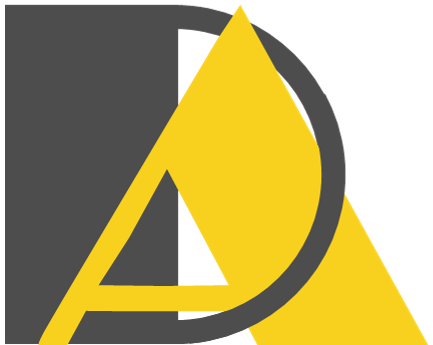Bridging the Gap: Aligning Learning Goals, Activities & Assessments
Are your corporate training programs achieving their full potential? Organizations invest billions in employee training annually, but the real question is: Are we engaging learners effectively to maximize ROI and drive organizational success?
Aligning goals, activities, and assessments can overcome engagement challenges, foster deep learning, and ensure long-term impact. Engagement is the key to transforming learning experiences into measurable outcomes.
Facilitating Engagement and Cultivating Active Learning
"Teachers can play a meaningful role in promoting student engagement and learning outcomes by incorporating active learning techniques."
This statement motivated me to reflect on my experiences and explore the roles of an instructor and learner in the learning process, and developing strategies to reduce barriers to improve learner engagement.
Integrating Business Analysis & Project Management
In today's fast-paced world, delivering meaningful business value through projects is more challenging than ever. While project management focuses on implementing change, business analysis identifies the needs driving that change. Yet, these disciplines often operate in silos in most of the organizations, leading to missed opportunities and unclear accountability for value creation.
Creating Value Through Projects: From Outputs to Outcomes
Whether you're leading a business initiative or managing personal projects like moving to a new home, organizing an event, or planning a wedding, achieving the desired value is key to feeling successful and fulfilled. Understanding the difference between output, outcome, and impact is critical in any project.
Understanding Curriculum and Syllabus in Business Educational Programs
The terms "syllabus" and "curriculum" are often associated with formal educational systems. These concepts are also applicable in the business world, where organizations utilize them without explicitly naming them.
By understanding and effectively utilizing these concepts, businesses can enhance their training programs, ensuring that employees are well-equipped with the necessary knowledge and skills. This strategic approach to education and training ultimately leads to a more competent and adaptable workforce capable of thriving in a rapidly changing business environment.
Hidden Curriculum
Although "curriculum" is typically associated with formal education, it is also highly relevant in business. This term refers to a comprehensive framework encompassing formal and informal educational programs. These programs aim to develop specific skills and knowledge through structured experiences, interactions, and assessments within the workplace, aligning with the organization's strategic goals and objectives. The curriculum includes all educational and training activities to achieve the desired outcomes. Sir John Dunford highlights an important aspect of this process by comparing the official curriculum to the visible part of an iceberg. This analogy is equally applicable to the business world.
Why Are We Evaluating Learners?
Before working as an instructor, I was responsible for organizing and clarifying the expected value of educational programs for my team and selecting measuring methods. However, when my role transitioned from business manager to instructor, I lost the legitimate power to design the evaluation process. In most courses, organizations carried out the evaluations without assessing the overall performance of the educational activities or measuring the long-term value created.
I then encountered survey results shared by Fenwick and Parsons, which indicated that over 75 percent of training evaluations were limited to learner satisfaction surveys or "smile sheets." Fenwick and Parsons emphasize the importance of the evaluation process, stating, "We must ask what we are doing and why we are doing it."
Teaching and Project Management
Success in both teaching and project management depends on the ability to adapt, innovate, and tailor approaches to suit the specific needs of the situation. No philosophy, theory, methodology, or framework can guarantee success in achieving the expected change.
Resistance to Learning
Failures, conflicts, and problems of business life all provide learning opportunities, and how we handle them impacts how we perform in our social and business lives.
Not all business professionals turn these great learning opportunities into achievements. Resistance to learning appears at every educational level, including professional life.
Diversity in the Business World
Diversity is a growing challenge in schools, our social lives, and the business world. The leaders must acknowledge and address this multifaceted diversity and develop a strategy and approach to handle it effectively.
Leadership
The contemporary project management realm is not hindered by a lack of knowledge or inadequate experience. Instead, our complex and rapidly evolving world demands an increased presence of effective leaders to navigate and drive success.
Experiences
“Simply having experiences does not imply that they are reflected on, understood or analyzed critically. Individual experiences can be distorted, self-fulfilling, unexamined and constraining,”
Agile Leadership
Agile transformations demand agile leaders at every level of an organization who understand how to truly “Be Agile.”
The Agile Dilemma
Sustainable success in value creation is a company-wide journey, which requires a transformation for most companies. And success in this journey can only occur with the belief and active support of C-level executives.
Leadership In VUCA World
VUCA world requires agility and a collaborative effort that transcends traditional roles and responsibilities. Such a business culture is essential to survive and grow in this challenging ecosystem. Creating this culture is often beyond the power of the project management key players.
From Failure to Success
Effective project management alone is not enough to create value; a sound vision and strategy must guide it.
Hidden Curriculum
I teach project management, and my courses often last for 2-3 days. Each course is tailored to the expectations and requirements of the organization requesting the course. Until now, I've defined course objectives, content, and sometimes outcomes without referencing curriculum or syllabus concepts. However, the concept of hidden curriculum encouraged me to explore these concepts with regard to the courses I teach in the business world.
The Voice of a Servant Leader
Carlos Kleiber was an Austrian conductor who is widely regarded as among the greatest conductors of all time.
Bridging the Gap
Whatever the methodology used, project managers can benefit from the practices and techniques of both traditional and agile approaches.




















